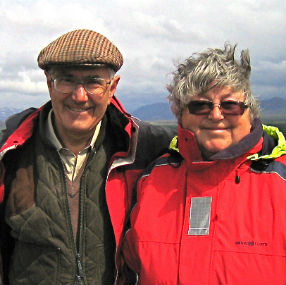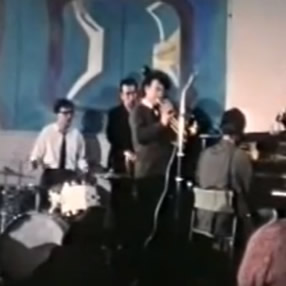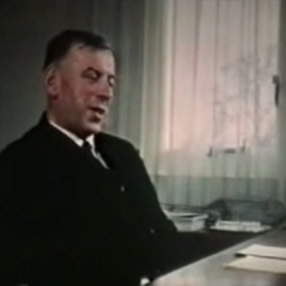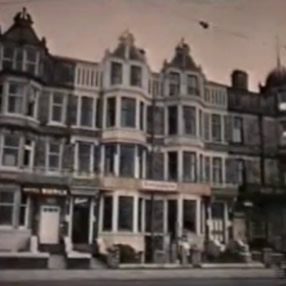Remember When
Here are some of the people and events that have made the University what it is today.
Send your memories and anecdotes (max 300 words plus a high resolution photograph) to alumni@lancaster.ac.uk.
We’ll include as many as we can.
Is This The Longest Married Couple?
Michael and Katherine (Kate) Lea (nee Edney) met at the first social event in 1964 at Lancaster University and married December 30, 1966 at Lancaster Registry Office which currently makes them the oldest married couple, unless you know differently!
Katherine was one of the first History undergraduates and after working for various careers services she went freelance and edited and wrote books and articles for publishers, including UCAS and Cassell - her Careers Encyclopedia is still listed on Amazon!
Michael was one of the first postgraduates in Physics – ‘Coldest man in Lancaster’ said the headline in the Lancaster Guardian when he cooled his cryostat in St Leonardgate down to near absolute zero! This was his first low temperature lab for Prof. Roland Dobbs; he built his second at Bailrigg, a third at Bedford College and a fourth at Royal Holloway, University of London where he was appointed Professor. He has published over 150 research papers and is still invited to give papers at international conferences’.
Here they recall the very start of it all……..
‘Those early days were very different. The university started in a range of buildings with fairly basic facilities, and it was very much a ‘nine to five university’. Lectures for the largest faculties were in a converted church or the Grand Theatre and the main building in St Leonardgate was often deserted in the evenings except for those poor postgrads trying to get their equipment to work. Of course there were the pubs to socialise in, but we were all scattered over Morecambe and Lancaster in ‘digs’ and it took a while for the landladies to become used to students! We moved out as soon as possible and became notorious when most of the university came to our housewarming party in Silverdale. There was quite a traffic jam as many of us were on full grants and could afford to run cars.
History was probably the largest faculty but there were only four of us taking Marcus Merriman’s inspirational special subject (Scotland 1543-1560). His tutorials were very demanding but staff were friendly and many, like Marcus, were on first name terms. I helped found the History Society and it was great fun taking our speakers out for afternoon tea before handing them over to Prof. Austin Woolrych.
We moved out to the building site called ‘Bailrigg’ in our third year and for the first time ‘Bowland’ meant something as I had a study room there. Looking back we certainly missed out on ‘typical’ student campus life but ‘small is beautiful’, and there were certainly compensations being pioneers - we had a really great time and we founded a great university!’
Student Social Life at 1960s Lancaster University
The social life of the early students tended to revolve around the activities organised by individual colleges.
Band nights were very popular, but one former member of Pendle recalled that there were only a few electrical sockets by the door of Pendle bar. This meant that great long reams of electrical cable were stretched across the room; unsuspecting musicians that didn't cut the rug often had their wires unplugged in mid rendition with a simple yank of the power cords! The Great Hall also staged concerts by nationally known groups including Roxy Music, Dire Straits, Mike Oldfield and Eric Clapton, but because of fire regulations and increasing costs of touring, such gigs died out in the 1980s. Today live music is largely restricted to the off-campus social centre in town, the Sugar House.
The Conception of the University
In the 1960s, the North-West had more than 7 million inhabitants so it is easy to see why a third university was proposed for the region. The first Vice Chancellor of Lancaster University, Charles Carter made a somewhat tongue-in-cheek comment about why the university was built, when he stated that the people in London wanted a new university in this area in order to "civilize the North."
Student Accommodation in 1960s Morecambe
The new students who joined Lancaster in its inaugural year were housed at St Leonardgate and in Morecambe.
Student accommodation in Morecambe was hotly criticised, despite the fact that it was hoped that the town would become a 'playground' for the new students. Some students had disagreements with their landladies. One in particular lamented that he was allowed to have "one bath a week on a Saturday and if you missed that, you had to wait until next week." Charles Carter hoped that the landladies in Morecambe would see students as more than just a means of earning money in the winter. Instead, they should regard themselves as offering a social service.





